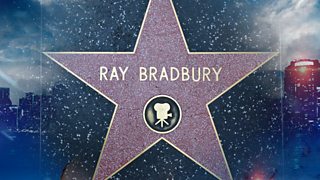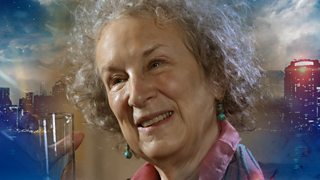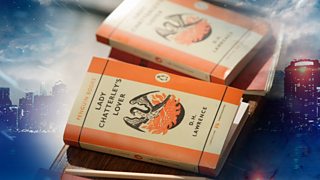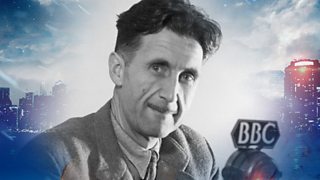Cover your eyes! Five bestselling books the censors didn't want you to read
Some books have provoked controversy and outrage on publication – banned for being obscene, immoral, or politically extreme.
The Handmaid's Tale, currently showing on television, and Fahrenheit 451, part of BBC Radio 4's Dangerous Visions season, are two such controversial novels. We’ve compiled a list of literary masterpieces that have suffered at the hands of the censors. Read on to find out why...


1. Fahrenheit 451 – Ray Bradbury
The disturbing act of book- burning is the key theme of science fiction writer Ray Bradbury’s classic dystopian novel set in a future where unchecked technology has superseded human knowledge and intimacy.

Believing that Bradbury’s original book could disturb impressionable high school students, his publisher produced two versions: the full or “adult” version, and an edited version for schools, in which as many as 75 passages were modified
Bradbury knew nothing of this. He found out 13 years and ten editions later, in 1979, when a friend drew these text alterations to his attention. Bradbury was furious and insisted the edited version of his book be replaced by the original. In some later editions, a statement from Bradbury appears in the book, which states:
“I will not go gently on to a shelf, degutted to become a non-book.”

2. The Handmaid’s Tale – Margaret Attwood
Margaret Atwood’s novel charts a future where power is in the hands of a military authoritarian state called Gilead: women have no rights, and pollution has created low fertility rates. Offred, the story’s female protagonist, is a Handmaid in the new order, assigned to a commander (and his wife) in order to bear him children.

This thought-provoking story has continued to stir controversy since its initial publication in 1985. It’s ranked number 37 in The American Library Association’s 1990-1999 list of the 100 most frequently challenged books.
It was actually banned in a Texas school due to a parent complaining that it was sexually explicit and offensive to Christians, although the ban was later overturned.
James LaRue, director of the ALA’s Office For Intellectual Freedom says the book has received hundreds of complaints, mainly from schools, about its explicit language and sexual themes; but the fact that the content isn’t anywhere near as graphic as in other novels which aren’t frequently challenged suggests it is the message and content of the book with is offending people: “People don’t want to see message so they complain about something else. They say well this is about sex. Well no it’s about more than sex, it’s about the harvesting of women’s bodies.”

3. Lady Chatterley’s Lover
DH Lawrence’s sexually explicit tale of an adulterous and passionate affair between an upper class lady, Constance Chatterley, and her working-class lover Oliver Mellors – her husband’s gamekeeper – was published privately in Italy in 1928 and immediately banned in Britain.

Lady Chatterley’s affair begins in part with her husband Sir Clifford Chatterley’s impotence due to injuries sustained in the Great War. She betrays both him, and her class, by sleeping with one of her staff, and in doing so breaks an unspoken code.
The nature of this liaison was immensely shocking on several levels to a society strictly run on entrenched class principles. But what really marked the book apart was the extremity and explicitness of the language used to describe the intimacy of the two protagonists.
It was finally published in 1960 after the publishers (Penguin) deemed the law relaxed enough to proceed, but still faced an Old Bailey obscenity trial which was won with the help of notable authors and literary critics of the time including EM Forster. Prosecuting counsel famously failed to catch the zeitgeist of the 1960s with his question… “Is it a book that you would… wish your wife or your servants to read?”
Read more
Dirty books and literary freedom: The Lady Chatterley publisher who beat the censors



4. Madame Bovary – Gustave Flaubert
Madame Bovary, the Gustave Flaubert masterpiece caused controversy from the moment of its 1857 serialisation in La Revue de Paris, a magazine run by Flaubert’s friend Maxime Du Camp.
The art of writing is the art of discovering what you believe.Gustave Flaubert
Du Camp felt it would be impossible to get the work past the French censors unedited. Author and publisher agreed to remove certain passages and replace them with a note that read: “Here the editors found it necessary to suppress a passage unsuitable to the policies of the Revue de Paris; we hereby acknowledge this to the author.”
This, however was not enough to placate the French government and Flaubert was charged with offending public morality. At his trial on 29 January, 1857, the prosecution argued that Emma Bovary's joy in committing adultery was reprehensible and that reading Flaubert's work would inevitably lead to the decay of public decency.
But the jury took a different view and decided that the number of offending passages were few when compared with the volume of the whole work. After acquittal on February 7, 1857, Madame Bovary was republished in its entirety and sold 15,000 copies in two months.
In the United Kingdom Madame Bovary featured on a secret government blacklist. Home Office files, now released, show that during the 1950s, chief constables were instructed to purchase, seize, then burn any copies they found.

5. Animal Farm – George Orwell
George Orwell’s Animal Farm follows the fate of a group of farm animals who successfully revolt against their human masters… only for their leaders – the pigs – to become as oppressive and tyrannical as the farmers themselves once they gain power.

Completed in 1944, Orwell was already a respected and successful writer and this was his most powerful and accessible work to date. Even so, he struggled to find anyone who was prepared to publish it.
It was the novel’s obvious parallels with Stalin’s Soviet Union that concerned the potential publishers who declined the book. This even included TS Eliot, who at the time was working as a director at the publishing house Faber and Faber. While Orwell’s writing was highly regarded, it was thought it simply “would not do” to offend an ally of Britain in the midst of a World War.
Orwell was not impressed by this argument and in due course noted in the preface to his novel that: "The sinister fact about literary censorship in England is that it is largely voluntary..."
When Animal Farm did eventually find an outlet with the small British publisher Secker & Warburg the first edition of 4,500 copies was an immediate success and a reprint of 10,000 copies soon followed. It is notable that Animal Farm was banned in the USSR until Perestroika for criticising communism, but was also banned in the USA for having "communist material" in its introduction.

Dangerous Visions
-
![]()
Listen to Fahrenheit 451
Ray Bradbury’s classic dystopian novel set in a future where unchecked technology has superseded human knowledge and intimacy. Part of BBC Radio 4's Dangerous Visions season.
More Dangerous Visions
-
![]()
Darkness at Noon
Adaptation of Arthur Koestler's nightmarish portrait of a totalitarian state.
-
![]()
Siege
A politician causes unrest in Grenoble as he campaigns to be the next mayor.
-
![]()
Kafka's Metamorphosis
By Franz Kafka. A darkly comic updating of the classic tale. Adapted by Alan Harris.
-
![]()
Perimeter
Dystopian comedy about a city divided by a giant fence. By Josie Long.





